Interviews with noteworthy people about their lives, ideas, and current events.
�
-
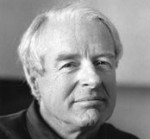
Adam Hochschild, author, historian, and co-founder of Mother Jones Magazine, talks about his career in the newspaper business, how journalism has changed over the past few decades, and the role for journalists in the Trump era.
Podcast: Play in new window | Download (Duration: 41:07 — 75.3MB)
-
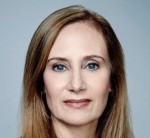
Dr. Ruth Ben-Ghiat, Professor of History and Italian Studies at New York University, talks about her research on the rise of fascism in 1920s Italy, how and why authoritarian leaders can gain power, and her views on the 2016 U.S. Presidential election.
Podcast: Play in new window | Download (Duration: 51:24 — 23.5MB)
-
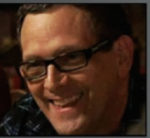
Bob Petrella, one of a few dozen people in the world who has been diagnosed with Hyperthymesia, talks about growing up in Northwestern Pennsylvania, how a near-perfect autobiographical memory has impacted his life, and some of the early insights scientist have gleaned from researching HSAM.
Podcast: Play in new window | Download (Duration: 31:54 — 14.6MB)
-
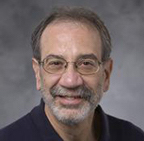
Dr. Henry Friedman, deputy director of the Preston Robert Tisch Brain Tumor Center at Duke University, talks about his professional background, his career working to help children and adults with brain and spinal cord tumors, and Duke’s initial trials using the polio virus to treat glioblastoma, a procedure recently documented on 60 Minutes.
Podcast: Play in new window | Download (Duration: 22:32 — 10.3MB)
-
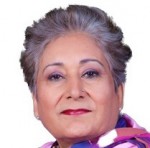
Author and activist Raheel Raza talks about growing up in Pakistan as a Sunni Muslim, her video “By The Numbers,” which documents scientific polling data about the beliefs of Muslims around the world, and her work to try to modernize the Islamic world in relation to human rights and fundamental freedoms.
Podcast: Play in new window | Download (Duration: 34:27 — 15.8MB)
-
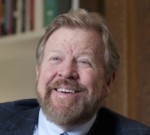
Author and linguistics professor Daniel Everett talks about becoming a Christian missionary as a young adult, living with the Pirahã tribe in the Amazon in an attempt to convert them to Christianity, and how his experience with the Pirahã moved him to atheism and a reevaluation of his beliefs and his life.
Podcast: Play in new window | Download (Duration: 42:52 — 19.6MB)
-
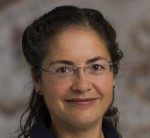
Dr. Theodora Ross talks about her career in medicine, her role as director of UT Southwestern’s Cancer Genetics Program, and her new book, A Cancer in the Family, a personal and scientific story highlighting the latest science of cancer genetics.
Podcast: Play in new window | Download (Duration: 36:38 — 16.8MB)
-
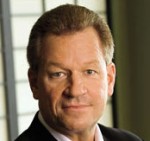
Author James Bradley talks about the path the led him to write his first book, Flags of Our Fathers, the historical revelations of his third book, The Imperial Cruise, and the themes of his most recent book, The China Mirage.
Podcast: Play in new window | Download (Duration: 32:49 — 15.0MB)
-
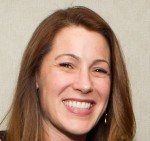
Robyn Thomas, Executive Director of the Law Center to Prevent Gun Violence talks about gun control history in the United States, the 101 California shooting in San Francisco, and how California has been able to reduce gun violence through statewide legislation.
Podcast: Play in new window | Download (Duration: 34:54 — 16.0MB)
-
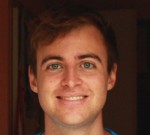
Sean Conley, a research analyst at GiveWell, talks about the history of GiveWell, its methods used to analyze the cost-effectiveness of charitable organizations, and its primary goals for the future.
Podcast: Play in new window | Download (Duration: 41:10 — 18.8MB)
-
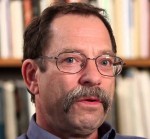
Joel Beinin, Professor of Middle East History at Stanford University, talks about living on a kibbutz in Israel, how that experience influenced the trajectory of his personal and professional life, and the history of Israel and Palestine.
Podcast: Play in new window | Download (Duration: 1:05:44 — 30.1MB)
-
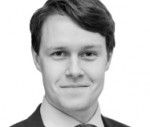
Jonathan Russell, head of policy at Quilliam, talks about the state Islamic extremism in the world, the three founders of Quilliam – all of whom were Islamists earlier in their lives – and the work of Quilliam, the “world’s first counter-extremism think tank,” which was created to “generate creative, informed and inclusive discussions to counter the ideological underpinnings of terrorism.”
Podcast: Play in new window | Download (Duration: 53:03 — 24.3MB)
-
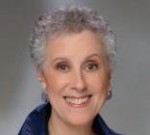
Author Linda Hirshman talks about the changes in opportunities for women in the American workplace over the past two generations, and the lives and careers of America’s first two female Supreme Court Justices, Sandra Day O’Connor and Ruth Bader Ginsburg, who are the subjects of her new book, Sisters in Law.
Podcast: Play in new window | Download (Duration: 38:38 — 17.7MB)
-
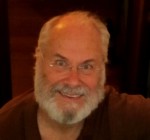
Anthony Norfolk, board president of the Roedde House Museum in Vancouver, Canada, talks about this history of Vancouver, the lives of early pioneers as seen through the home of the city’s first bookbinder, Gustav Roedde, and the day-to-day life of individuals at the end of the 1800s.
Podcast: Play in new window | Download (Duration: 32:09 — 14.7MB)
-
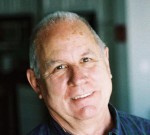
Tim Lennon talks about SNAP, Survivors Network of those Abused by Priests, his own childhood experience with sexual abuse by a Catholic priest, and the movie Spotlight, which details the 2001 Boston Globe investigation of the cover-up of the sexual abuse of children within the Catholic Church.
Podcast: Play in new window | Download (Duration: 58:12 — 26.6MB)
-
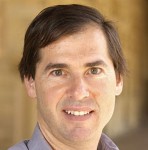
Professor David Grusky, director of Stanford University’s Center on Poverty and Inequality, talks about the history of income inequality in America, the millions of Americans who are currently living in poverty, and potential public policy that could alter the growth of the U.S.’s economic disparity.
Podcast: Play in new window | Download (Duration: 34:27 — 15.8MB)
-
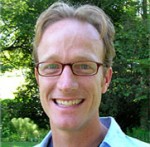
Dr. Vance Vredenburg talks about the history of extinctions on Earth, his influential paper “Are we In the midst of the sixth mass extinction?“, and what humans can do to decrease extinction rates throughout the world.
Podcast: Play in new window | Download (Duration: 42:33 — 19.5MB)
-

Returning guest, author Adam Hochschild, discusses his book King Leopold’s Ghost, which details the Belgian colonization of the Congo. Adam talks about the individuals who publicized the genocide which resulted from the colonization, and how the murder of roughly 10 million Africans was virtually unknown to public consciousness until the past few decades.
Podcast: Play in new window | Download (Duration: 52:28 — 24.0MB)
-
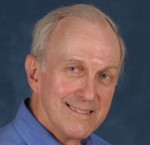
Stanford economic historian Gavin Wright talks about his interest in the South, the economic history of slavery in America, and the issue of the Confederate flag in modern times.
Podcast: Play in new window | Download (Duration: 1:11:20 — 32.7MB)
-
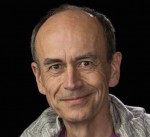
Stanford neuroscientist Thomas Südhof talks about growing up in Germany, his interest in the brain, and the discoveries that led to his being awarded the 2013 Nobel Prize.
Podcast: Play in new window | Download (Duration: 41:32 — 19.0MB)
-
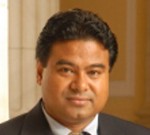
Ko Ko Lay talks about the history of Burma, the military dictatorship that has controlled his nation for decades, and his efforts in the 1980’s as a revolutionary fighting back against the single-party regime.
Podcast: Play in new window | Download (Duration: 43:04 — 19.7MB)
-
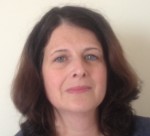
Tracey Helton talks about how she went from being a high school honors student in Ohio to a heroin addict, her years of living homeless on the streets of San Francisco, being featured in the HBO documentary Black Tar Heroin, and her 17 years of sobriety, during which she has become a drug counselor, a wife, and a mother of three.
Podcast: Play in new window | Download (Duration: 37:00 — 16.9MB)
-
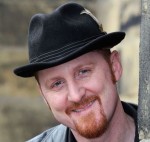
Jamie DeWolf, the great-grandson of Scientology founder L. Ron Hubbard, discusses the life of L. Ron Hubbard, the recent book and documentary about Scientology, Going Clear, and his own criticisms of the history, practices, and beliefs of Scientology.
Podcast: Play in new window | Download (Duration: 1:02:12 — 28.5MB)
-
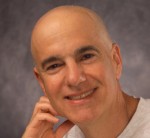
NASA research scientist Jack Lissauer talks about his path to working at NASA, the process by which stars and planets are created in the universe, and his work on the Kepler program, which is trying to discover Earth-like planets that are orbiting other stars.
Podcast: Play in new window | Download (Duration: 34:26 — 15.8MB)
-
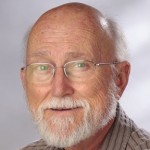
Terry Plank, President of the Board of Directors of The Clergy Project talks about his journey from Christian pastor to atheist, and the work of The Clergy Project, which provides support and encouragement to former and current members of the clergy who no longer believe in the supernatural.
Podcast: Play in new window | Download (Duration: 38:26 — 17.6MB)
-
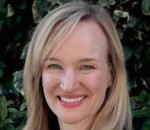
Alexa Koenig, Executive Director of the Human Rights Center at the University of California – Berkeley, talks about her interest in human rights, war crimes in the 20th and 21st century, and the work of the Human Rights Center.
Podcast: Play in new window | Download (Duration: 26:06 — 12.0MB)
-

Author Adam Hochschild talks about his interest in journalism and history, his book Bury the Chains, which details the abolitionists who worked to successfully end the British slave trade, and what modern climate change activists can learn from the lessons of that movement.
Podcast: Play in new window | Download (Duration: 45:12 — 20.7MB)
-
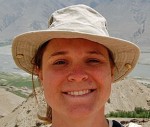
Stanford Ph.D. candidate Frances Moore talks about the science of climate change, the history of governmental treaties to address global warming, and her research relating to the long-term economic costs of carbon emissions.
Podcast: Play in new window | Download (Duration: 41:05 — 18.8MB)
-
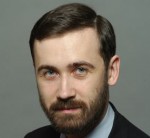
Russian opposition leader Ilya Ponomarev talks about the rise of Vladimir Putin, the dissenting votes he cast as a member of the State Duma, his banishment from Russia, the recent assassination of anti-Putin activist Boris Nemtsov, and the future of his native country.
Podcast: Play in new window | Download (Duration: 36:05 — 16.5MB)
-
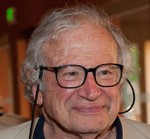
Stanford University historian Peter Stansky talks about the life of George Orwell, the two biographies he wrote about Orwell, and the relevance of 1984 in modern times.
Podcast: Play in new window | Download (Duration: 47:45 — 21.9MB)
-
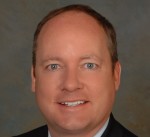
Commercial Spaceflight Federation President Eric Stallmer talks about the history of humanity in space, companies like SpaceX and Virgin Galactic that are trying to bring people into space, and the resurgence of the public’s interest in pushing the boundaries of space exploration.
Podcast: Play in new window | Download (Duration: 32:24 — 14.8MB)
-
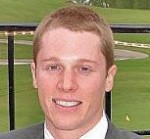
UCSF resident John Hartmann talks about the history of psychedelics, recent medical studies on the effectiveness of psychedelics on treating addiction, depression, and other ailments, and the timeline of when these substances may become available as legal medical treatments.
Podcast: Play in new window | Download (Duration: 55:48 — 25.5MB)
-

Jason Riggs, Director of Communications at Kiva, talks about the creation of Kiva, its growth, challenges, and successes over its ten year history, and how microfinance provides small loans to those in need of economic opportunities.
Podcast: Play in new window | Download (Duration: 39:08 — 17.9MB)
-
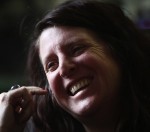
Jennifer Friedenbach, Executive Director of the Coalition on Homelessness, talks about the history of homelessness in America, a few of its main causes and common myths, and potential federal public policies that would dramatically reduce its frequency.
Podcast: Play in new window | Download (Duration: 32:28 — 14.9MB)
-
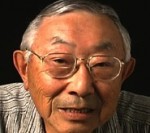
Hiroshi Kashiwagi talks about growing up as a Japanese-American at the beginning of the 20th century, being forced to live at the Tule Lake internment camp during World War II, and losing — and later regaining — his American citizenship.
Podcast: Play in new window | Download (Duration: 36:14 — 16.6MB)
-
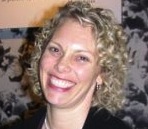
Laurel Fletcher, Director of the International Human Rights Law Clinic and law professor at the University of California – Berkeley, talks about the history of the Guantánamo Bay prison, her book, Guantánamo and Its Aftermath, and Guantánamo’s impact on many of it current and former detainees.
Podcast: Play in new window | Download (Duration: 31:18 — 14.3MB)
-
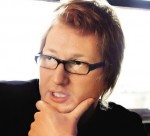
Dr. Marko Zajc, historian at the Institute of Contemporary History in Ljubljana, Slovenia, discusses the history of Slovenia.
During our conversation, Marko talks about Slovenia’s place in the Austro-Hungarian Empire, its participation in the First and Second World War, and its experience under Communist dictator Josip Broz Tito.
Podcast: Play in new window | Download (Duration: 44:27 — 20.4MB)
-
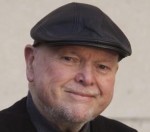
Ronald Howard, Professor of Management Science and Engineering at Stanford University, talks about truth-telling, deception, and lying in our society. Ronald’s former student, the author Sam Harris, wrote a book, Lying, that was inspired by Ronald’s class.
Podcast: Play in new window | Download (Duration: 47:36 — 21.8MB)
-
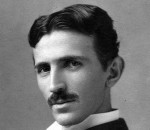
Ivana Zoric, curator of the Nikola Tesla museum in Belgrade, Serbia, talks about the personal life of Nikola Tesla, the breadth of his various inventions, and the resurgence of his popularity in modern times.
Podcast: Play in new window | Download (Duration: 34:41 — 15.9MB)
-

Syrian refugee Salam talks about defecting from the Syrian army, his reasons for leaving the Syrian military, his escape from Syria into Turkey, and the rise of the extremist group ISIS.
As a side note: Salam has chosen to abbreviate his name to protect his identity.
Podcast: Play in new window | Download (Duration: 31:45 — 14.5MB)
-
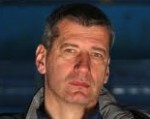
Aleksandar Petrović, older brother of the late Dražen Petrović — a European sports legend known as the “Mozart of Basketball” — talks about growing up with Dražen, Dražen’s rise to stardom in Europe and the NBA, and the tragic car accident that ended his life at age 28.
Podcast: Play in new window | Download (Duration: 38:34 — 17.7MB)
-
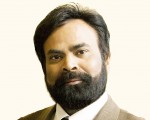
University of California – Berkeley Haas School of Business professor Solomon Darwin talks about the history of the caste system in India, his family’s experience as Untouchables, and the egalitarian school that he created in his native country to educate underprivileged students.
Podcast: Play in new window | Download (Duration: 43:34 — 19.9MB)
-
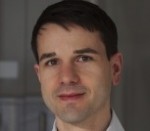
IEX Head of Product Matt Trudeau talks about the genesis of IEX, its goals in changing high-frequency trading, and the impact of Michael Lewis’s Flash Boys on this new financial start-up.
As a side note: my apologies for the occasional lightning and thunder — which enveloped all of Wall Street — during this interview. The reason for these celestial blasts is still being investigated.
Podcast: Play in new window | Download (Duration: 32:15 — 14.8MB)
-
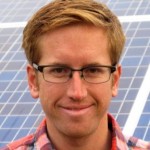
350.org Co-founder and Communications Director Jamie Henn talks about the creation of 350.org, the ramifications for humanity if greenhouse gas emissions continue at their current rate, and how individuals and nations can change their behavior to combat global warming.
Podcast: Play in new window | Download (Duration: 36:14 — 16.6MB)
-
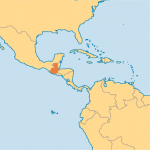
Undocumented immigrant Jose Gonzalez talks about his upbringing and family in Guatemala, risking his life for a chance to enter America, and his reasons for wanting to live and work in the United States.
As a side note: Jose Gonzalez is a pseudonym, used for his protection.
Podcast: Play in new window | Download (Duration: 36:19 — 16.6MB)
-

Dr. Anne Schreiter talks about being born in East Germany, her family’s experience under Communism, life both before and after the fall of the Wall, and the Stasi, the East German government’s secret police.
Podcast: Play in new window | Download (Duration: 41:14 — 18.9MB)
-

Lee Seong Min talks about his life inside North Korea, how and why he escaped from his native country, and his thoughts on the future of one of the world’s most secretive, oppressive, and totalitarian governments. Per his request — and for his protection — his picture will not be displayed on The Exchange’s website.
As a side note: my apologies for the decreased audio quality of this interview. Lee and I spoke outdoors, outside of a conference in San Francisco, California.
Podcast: Play in new window | Download (Duration: 21:55 — 10.0MB)
-
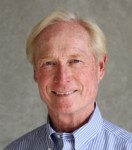
Author Herschel Cobb talks about his book, Heart of a Tiger: Growing up with my Grandfather, Ty Cobb. In his book and throughout our interview, Herschel talks about the Ty Cobb he knew years after “The Georgia Peach” had retired from baseball: a nurturing, thoughtful person who was a rare source of kindness during Herschel’s difficult and often abusive upbringing.
Podcast: Play in new window | Download (Duration: 34:08 — 15.6MB)
-
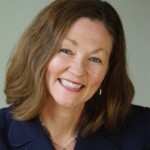
Author Laura Carroll talks about her books Families of Two and The Baby Matrix. She reflects on what she has learned from couples who have chosen not to have children, the reasons they have done so, and the societal pressure many of them have faced when encountering “pronatalism.”
Podcast: Play in new window | Download (Duration: 29:54 — 13.7MB)
-
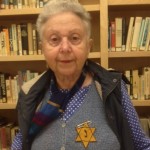
Holocaust survivor Anne Marie Yellin talks about growing up as a Jew in Germany in the 1930s, Kristallnacht, her father’s abduction into a concentration camp, hiding from the Nazis during World War II, and her reflections on how humankind can prevent future genocides.
Podcast: Play in new window | Download (Duration: 33:29 — 15.3MB)
-
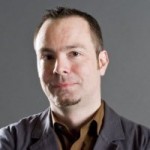
Ryan Wyatt, director of the Morrison Planetarium at the California Academy of Sciences, discusses how he got interested in astronomy, the impact of Carl Sagan’s Cosmos on his life and career, the newly-released reboot of the Cosmos series, and the greatest scientific challenges — and mysteries — of our time.
Podcast: Play in new window | Download (Duration: 31:45 — 14.5MB)
-
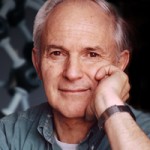
Sir Harold Kroto talks about his professional interests, his life both inside and outside of academia, and the discovery that would eventually win him the 1996 Nobel Prize in Chemistry.
Podcast: Play in new window | Download (Duration: 24:10 — 11.1MB)
-
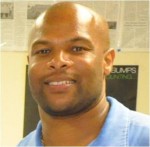
39-year-old former San Quentin inmate James Houston talks about his upbringing, his life within prison, what it’s like to be a free man, and the incident that led to his incarceration.
Podcast: Play in new window | Download (Duration: 29:33 — 13.5MB)


















































